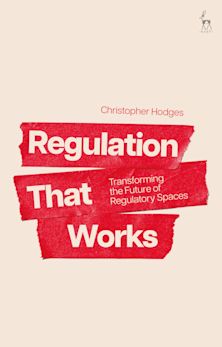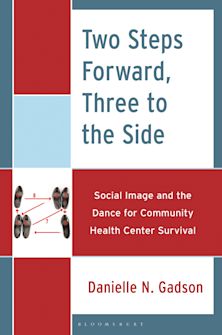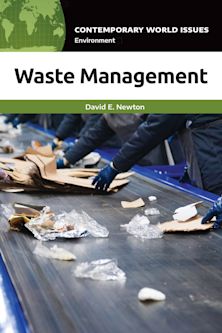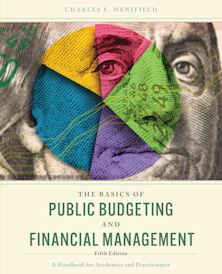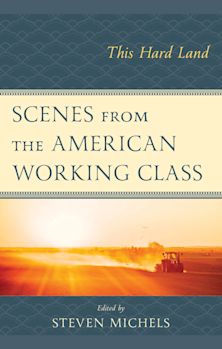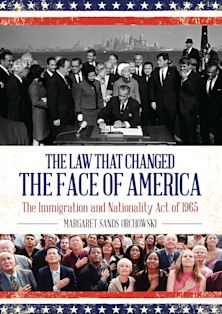- Home
- ACADEMIC
- Politics & International Relations
- Public Management, Administration and Policy
- Class and Class Conflict in the Age of Globalization
Class and Class Conflict in the Age of Globalization
This product is usually dispatched within 3 days
- Delivery and returns info
-
Free US delivery on orders $35 or over
You must sign in to add this item to your wishlist. Please sign in or create an account
Description
Social classes and class conflict have defined social relations ever since the division of society into hostile classes based on the exploitation and oppression of one class by another. This has become especially important in modern capitalist society through the globalization process, where class divisions have solidified with enormous inequalities in wealth and income that are the most glaring in the history of humanity.
Class and Class Conflict in the Age of Globalization presents a macro-sociological analysis of class and class conflict through a comparative-historical perspective. Focusing on class as the motive force of social transformation, Berberoglu explores class relations and class conflict in a variety of social settings, stressing the centrality of this phenomenon in defining social relations across societies in the age of globalization. Going beyond the analysis of class and class conflict on a world scale, the book addresses the role of the state, nation/nationalism, and religion, as well as the impact of race and gender on class relations in the early twenty-first century.
Table of Contents
Chapter 2 Conventional Theories of Class, Power, and Inequality
Chapter 3 The Marxist Theory of Class Conflict and Class Struggle
Chapter 4 Class and Class Conflict in Advanced Capitalist Societies
Chapter 5 Class and Class Conflict in the Third World
Chapter 6 Class, Class Conflict, and the State in the Age of Global Capitalism
Chapter 7 Class and Nation: Nationalism and Class Conflict on a Global Scale
Chapter 8 Class and Religion: Class Conflict and Religious Fundamentalism
Chapter 9 Class, Race, and Gender: Racism, Patriarchy, and Class Conflict
Chapter 10 Conclusion: Class Conflict, Class Struggle, and Social Transformation in the Age of Globalization
Product details
| Published | Oct 20 2008 |
|---|---|
| Format | Paperback |
| Edition | 1st |
| Extent | 188 |
| ISBN | 9780739124307 |
| Imprint | Lexington Books |
| Dimensions | 9 x 6 inches |
| Publisher | Bloomsbury Publishing |
About the contributors
Reviews
-
In this superb and compelling book, Berberoglu revisits the centrality of class relations and class struggle in twenty-first century societies marked by global capitalism, neoliberalism, intensified forms of exploitation and oppression, and emerging social movements. He presents a clear and powerful analysis of the complexities of class dynamics in relation to the historical and contemporary processes of state, national, religious, racial and gender oppression, the crisis of transnational capital, and the possibility of social transformation in the age of globalization.
Walda Katz-Fishman, Howard University, Washington, D.C.
-
Class and Class Conflict in the Age of Globalization stands out as one of a handful of efforts to advance a critical class analysis of the political economy of globalization. In addition to addressing the economic polarization and the political repression that have become part and parcel with global capitalism, Berberoglu explains the problems of nationalism and religious fundamentalism in the context of global class conflicts, offering a comprehensive understanding of the social fault lines we confront in this challenging period of human history.
Martin Orr, Boise State University
-
Class and Class Conflict in the Age of Globalization offers an analysis that is concise, creative, and sophisticated. Berberoglu ties together essential factors in today's political terrain: globalization, the state, class conflict, the continued salience of racism and sexism, and the impact of nationalism and religion when they are added to the mix. He confronts the worst of humanity's troubles while offering a concept and framework for understanding our plight and taking action to create change. That concept is social class, the core of the exploitation we see around us locally and globally. However, as Berberoglu writes, social class and class conflict are also the bases of social change, which has fueled our resistance historically and can create the ideologies and social movements to help us find a way forward.
Judy Aulette, University of North Carolina at Charlotte
-
The book is highly informative and includes a great deal of valid and valuable knowledge, making it worth reading.
Science & Society












